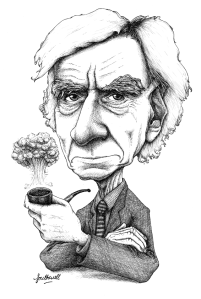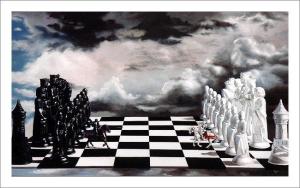
What I learned while reading Gone with the Wind
I have a confession to make.
I recently finished Margaret Mitchell’s classic American novel, Gone with the Wind. Moreover, I did this all on my own volition and free will. I guess my fascination with the American South – culturally, socially, and historically – has no limits, and in this case it has come to subsume a work of historical fiction. While the characters are fictitious; the setting, timeline, and narrative used to describe the attitudes, feelings, and life in the South before, during (and after) the Civil War is on its own worth it. There is lots to be said about this novel, its setting, its story of struggle, character growth, love, loss and tragedy. There is no doubt that the characters grow on the reader with the turning of every page.
I also confess that at first I committed to reading only the first one-hundred pages in order to make up my mind as to whether I wish to further engage with a story that unfolds over nearly 1500pages. At first, I found myself frustratingly counting (and recounting) how many pages I had left every time I put the book down but by the end I found myself sadly counting how many pages remained. Mitchell has the uncanny ability to carry through a smooth narrative without hardly ever missing a break in its unfolding. Even when you think the worse is over you eventually come to learn that in the next paragraph things can radically change with the sound of horse hooves in the distance or the delivery of a telegram requesting Scarlett to return to Tara or Atlanta.
This is not a happy story. It does not have a happy ending. The love between Rhett and Scarlett is not complete. There are no winners in this story, which far exceeded my expectations of the typical love tales. Throughout the entire book I kept waiting for the moment when things would finally begin to get better for Scarlett and others. No such moment ever comes. I had even always contextualized Rhett’s famous line (‘Frankly my dear, I don’t give a damn) as a pronouncement of love for Scarlett regardless of what the entire South thought (I also admit that I have never watched the motion picture version). So needless to say but I was somewhat struck by the nature of the relationship at the end and the confessions made by Rhett that in turn situated his character and behaviour throughout the story.
There is a lot to say about this book, all of which is not necessarily complementary or uncritical. The book itself caused much controversy when it was first published over its portrayal of Southern life and the political motivations surrounding the Civil war. Mitchell tells a partisan story that offers an alternative narrative concerning the events of the Civil war and its aftermath. Mitchell’s story at certain parts comes across as lamenting the old days (and ways), at other times a form of indirect defense of the slave system and the overly generalized fibs told in the Yankee strong Republican north about the treatment of slaves (e.g. Sam the slave informing Scarlett that he wished to return to Tara and return to a life of being told what to do – this is shortly after he tells her that folks in New York wished to hear about the gruesome tails of slavery but Sam didn’t have any personal experiences). The book also has a historical place to play in the (then) ongoing cultural war that followed the end of the Civil war, in this case the intellectual battle over which part of America is responsible for producing better minds and works.
I am certainly not an expert on either the time period or the broader history surrounding the book and the events of Mitchell’s life but I do wish to highlight three main things I have taken from reading this book; gumption, ahistorical events and love.
On Gumption
Generally defined as ‘shrewd or spirited resourcefulness’, the term ‘gumption’ is a new addition to my personal vocabulary. I never heard the term ‘gumption’ prior to reading this book and the first few times it was used it never stuck out to me. I initially became aware of the term by incidentally reading the back cover of the book which had included a short description of a 1936 interview with Mitchell where she happened to be asked what she took her book to be about.
She responded by saying,
“If the novel has a theme it is that of survival. What makes some people come through
catastrophes and others, apparently just as able, strong, and brave go under? It happens
in every upheaval. Some people survive; others don’t. What qualities are in those who fight
their way through triumphantly that are lacking in those that go under? I only know that
survivors used to call that quality ‘gumption’. So I wrote about people who had gumption and
people who didn’t.” (as quoted in the back cover)
The story is full of characters that exhibit mixed degrees of gumption. Mitchell’s claim is a little too simplified as some of her characters that show gumption in one case might fail to do so in another. Rhett Butler is a case in point. Clearly he has survived wars, shaming by his family, duels, jail and whatever else but there is something about him that is defeated by the end with the loss of his daughter, Bonnie, and then his eventual coming to terms over his relationship with Scarlett. Ashley is another character in point. His longing for a world that no longer exists and his failure to survive without riding the coattails of Scarlett and then his wife, Melanie, speaks to the character-type that never made it out of the Civil war, alive or otherwise. Ashley captures much of the old ways but his extinguished gumption becomes manifestly clear by the end of the story.
Scarlett, on the other hand, shows gumption throughout the novel but not without some reservation. Her strength is often informed by the wrong idea (e.g. her naïve love for Ashley) and thereby leaves the reader with a sense of Scarlett’s vulnerability and child-like character. Interestingly enough the novel ends with her showing some strength in believing that she can get Rhett back (tomorrow is another day after all!) despite his parting words. I certainly finished the last few pages holding out hope that despite the circumstances, Scarlett would find another way to escape her situation and get Rhett back. She is a survivor after all, she will surely find a way to overcome this latest setback in her life.
I am pleased to add ‘gumption’ to my list of terms. I confess that I came across this book at a time when I needed a little reminder about the need for gumption in my own changing circumstances. I have also always found value and reward in the kind of struggles individuals face and overcome in life – no matter what they may be. If nothing else, I valued the story for its ability to inspire the search for hope in an often-times quickly darkening world.
Ahistorical Account
Slavery is wrong. I do not think any one can, with any seriousness, challenge such an account. The moral wrongfulness of depriving others of their autonomy (even if subjected to positive treatment) is a wrong in and of itself. I mention this for two reasons. First, although the narrative associated with the rationale for the Civil war is connected to eliminating slavery, I am not naïve enough to think that this was the only rationale for the war. I am sure other political, economical and social reasons play a role. Independent of what such reasons might be offered (e.g. taxing the South or expanding central government, etc.), consensus can be reached that the system of slavery had to go. Second, despite my agreement with the given rationale motivating the conflict (i.e. with ending slavery), I still think the narrative of the war and its aftermath by the Confederates is of value.
Let me expand on this second point a little bit. The narrative told (justified or not) does reveal the hardships and feelings associated with colonialism, namely, usurpation of owned land, removal from political power, second-class treatment, unjust taxation, unfair treatment, and displacement. The novel takes up the so-called ‘Reconstruction’ period in the south and what many confederates saw as a form of humiliation in addition to the wrongfulness of the whole encounter.
What struck me about this theme is its ahistorical value yet some of the individuals I have engaged with here in Florida (and Georgia) often fail to apply the conclusions they reach to other current parts of the world. As a philosopher this is not strikingly new. Often I am able to engage others on the just nature of some legal or political situation-involving Group A or Group B. That is to say, in the abstract, many individuals have little difficulty grasping the morality of some situation involving nameless individuals (or states). However, as soon as I remove the labels A and B and replace them with real world places/conflicts, the answer often changes. I understand that context can matter but it remains to be determined when the context matters enough to alter the substance of the raised claim. Again, I am aware that I am likely privileging a particular approach and school of thought in philosophy but this is no reason to discount my suggestion. When those whom I engage with can agree, in principle, about the wrongfulness of the treatment and aftermath of the Civil war, they often just fail to transfer such conclusions to other worldly contexts.
So I was simply struck by the historical situation of the text but also its ahistorical value in terms of showing the associative experiences of displacement and so on. Finally, I was simply struck by how many of those I talked to fail to extend the themes to other parts of space and time.
Love
There is one passage, spoken relatively early in the story by Ashley when he is confronted by Scarlett. Scarlett, having heard of rumours that Ashley was to be engaged to Melanie, confronts Ashley and professes her love to him. His response, for reasons I do not wish to go too much into detail here, resonated with me.
“Love isn’t enough to make a successful marriage when two people are as different as
we are. You would want all of a man, Scarlett, his body, his heart, his soul, his thoughts.
And if you did not have them, you would be miserable. And I couldn’t give you all of me.
I couldn’t give all of me to anyone. And I would not want all of your mind and your soul.
And you would be hurt, and then you would come to hate me – how bitterly! You would
hate the books I read and the music I loved because they took me away from you even for
a moment.”
I will say this. There is nothing wrong with either Ashley’s view or Scarlett’s view. I have come to learn that things may go wrong when either Ashley is made to think that his love (and level of offering love to another) is insufficient or when Scarlett believes she is asking for too much by wishing to be loved in this way. More problematic is the associated sense of guilt that can accompany either feeling.
Moreover, Ashley was honest. His claim was not solely about Scarlett and her perceived needs. Rather, it was an honest statement about himself. He confesses that he ‘couldn’t give all of me to anyone’. Perhaps this is a burden, perhaps it is just who he is. Perhaps it is tragic or likely to lead to misery. But it was honest. I could have stopped reading the book after reaching this passage and would still have said I found value in Gone with the Wind.




 It would not take long before concerns grounded in the here-and-now would return. After the Hurricane, many people began to think of their own concerns, their homes, their close family and friends. Radio stations even began to assure listeners that any donated money will strictly go to aid those who were impacted in ‘our’ neighbourhood. One radio DJ went so far as to acknowledge that other areas (in and outside the US) were hit harder but we now need to ‘take care of our own’. It didn’t take long for the rainbow to disappear and for the Hurricane event to be subsumed into the regular political cycle. News channels and public concern are slowly returning to the various socio-political-economical-theological issues that unite and divide all of us.
It would not take long before concerns grounded in the here-and-now would return. After the Hurricane, many people began to think of their own concerns, their homes, their close family and friends. Radio stations even began to assure listeners that any donated money will strictly go to aid those who were impacted in ‘our’ neighbourhood. One radio DJ went so far as to acknowledge that other areas (in and outside the US) were hit harder but we now need to ‘take care of our own’. It didn’t take long for the rainbow to disappear and for the Hurricane event to be subsumed into the regular political cycle. News channels and public concern are slowly returning to the various socio-political-economical-theological issues that unite and divide all of us. Who knows! I was struck by the unexpected rupture that the Hurricane caused.
Who knows! I was struck by the unexpected rupture that the Hurricane caused.











